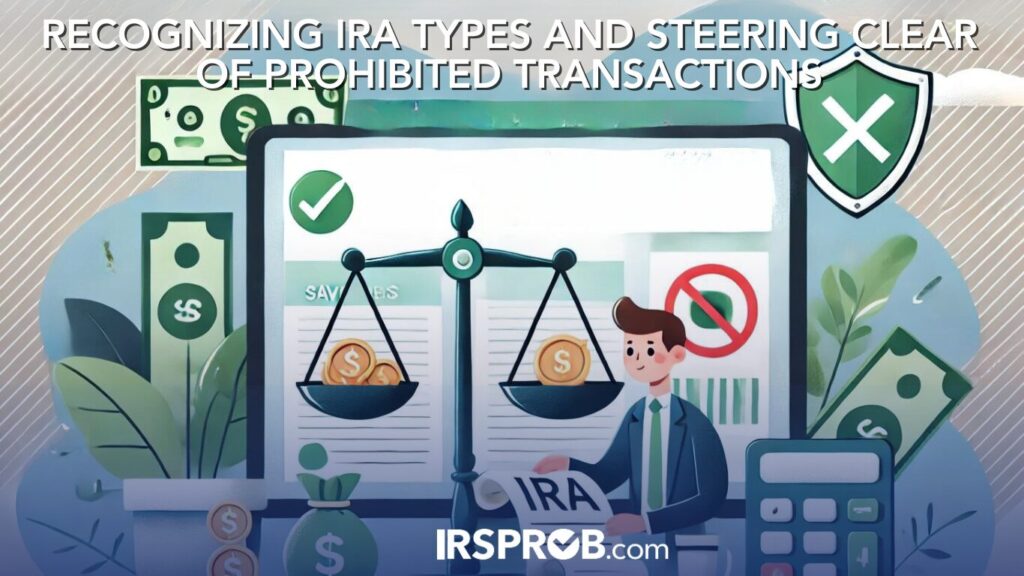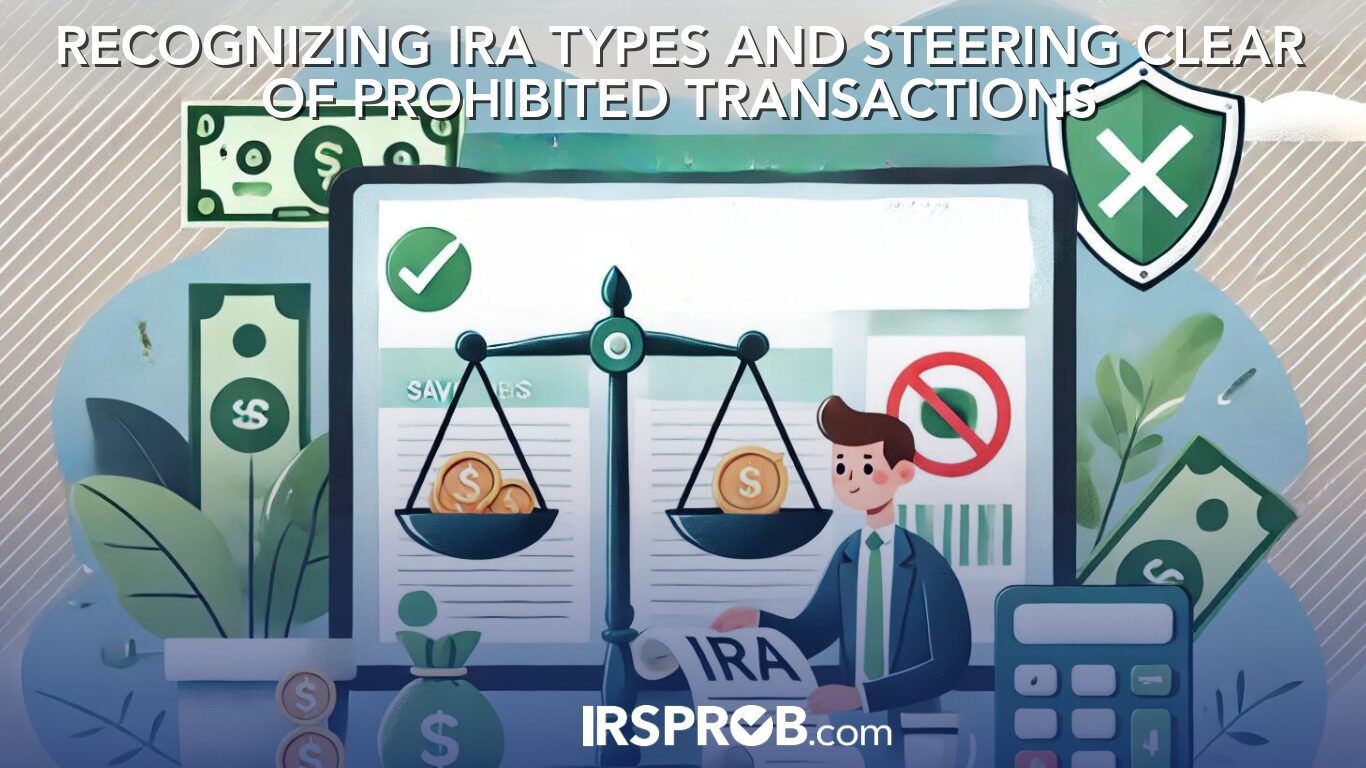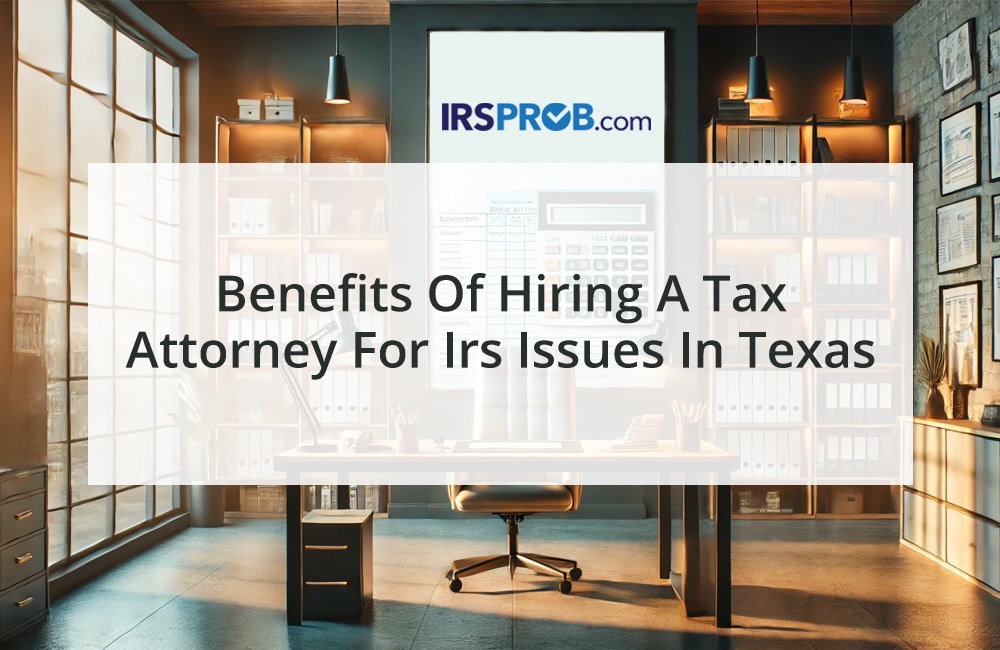
As a business owner, understanding the different types of Individual Retirement Accounts (IRAs) is essential to maximizing your retirement savings while avoiding unnecessary penalties. The IRS offers several types of IRAs, each with specific rules and benefits. Additionally, there are certain transactions that are prohibited within these accounts, which could lead to significant tax implications. Here’s a breakdown of the key types of IRAs and the importance of avoiding prohibited transactions.
Types of IRAs for Business Owners
- Traditional IRA– A traditional IRA is the most common retirement account. Contributions are typically tax-deductible, and your investments grow tax-deferred until you start making withdrawals. However, you must begin receiving distributions by April 1 of the year following the year in which you turn 73. A key advantage of a traditional IRA is that it offers flexibility, allowing you to set up the account through banks, credit unions, or approved trustees.
- Simplified Employee Pension (SEP) IRA– A SEP IRA allows business owners to contribute to their employees’ retirement savings. As an employer, you can make tax-deductible contributions to the SEP IRAs you’ve established for your employees. SEP IRAs have high contribution limits, making them an excellent option for businesses with fluctuating profits. Contributions are tax-deferred, and beginning in 2023, you can also make Roth contributions, which are taxed upfront but offer tax-free growth and withdrawals.
- SIMPLE IRA– Designed for small businesses, a SIMPLE IRA (Savings Incentive Match Plan for Employees) enables employees to contribute to their retirement plans through salary reductions, with an employer match. Similar to SEP IRAs, SIMPLE IRAs also allow for Roth contributions. The key difference is that all contributions must go to a SIMPLE IRA account specifically designated for that plan.
- Roth IRA– Unlike traditional IRAs, contributions to Roth IRAs are made with after-tax dollars, but qualified withdrawals are tax-free. If you expect to be in a higher tax bracket during retirement, a Roth IRA could be a smart choice. However, it’s important to note that contributions to Roth IRAs do not reduce your taxable income.
What Are Prohibited Transactions?
While IRAs offer great tax advantages, engaging in a prohibited transaction can cause your IRA to lose its tax-deferred status, resulting in significant penalties. The IRS outlines certain activities that are not allowed within an IRA. These include:
- Borrowing money from your IRA: Using your IRA as collateral for a loan or taking money out for non-qualified purposes can trigger immediate taxes and penalties.
- Selling property to your IRA: You cannot personally benefit from the sale of an asset into your IRA.
- Using your IRA as security for a loan: Just as borrowing from the account is prohibited, using it as a security for any loan violates IRS rules.
- Purchasing collectibles: Investing your IRA funds in artwork, antiques, or other collectibles is not allowed, though certain coins and bullion are exceptions.
If a prohibited transaction occurs, the account is no longer considered an IRA as of the first day of the year, and all its assets will be treated as distributed. This means you may owe taxes on the value of the entire account, plus a potential early withdrawal penalty if you are under age 59½.
How to Avoid Prohibited Transactions
As a business owner, it’s crucial to maintain the integrity of your IRA to avoid costly tax consequences. Here are a few tips:
- Keep personal and business assets separate: Avoid mixing IRA assets with other personal or business property.
- Consult with a professional: Ensure that any investment decisions related to your IRA comply with IRS rules. Engaging in prohibited activities can disqualify your account.
- Monitor your investments: If your IRA holds certain collectibles or assets, make sure they fall within the IRS-approved list of acceptable investments, such as specific coins or bullion.
Conclusion
IRAs can be a powerful tool in your retirement strategy, offering tax advantages that can lead to significant savings. Understanding the differences between traditional, SEP, SIMPLE, and Roth IRAs is essential, as is ensuring you avoid prohibited transactions. By doing so, you can secure your retirement and make the most of your tax-advantaged savings. Be sure to consult with a tax professional to ensure your investments and contributions align with the latest IRS regulations.
For more personalized advice on setting up the right IRA for your business or understanding prohibited transactions, feel free to reach out to IRSProb.com today. Let us help you safeguard your retirement savings!








